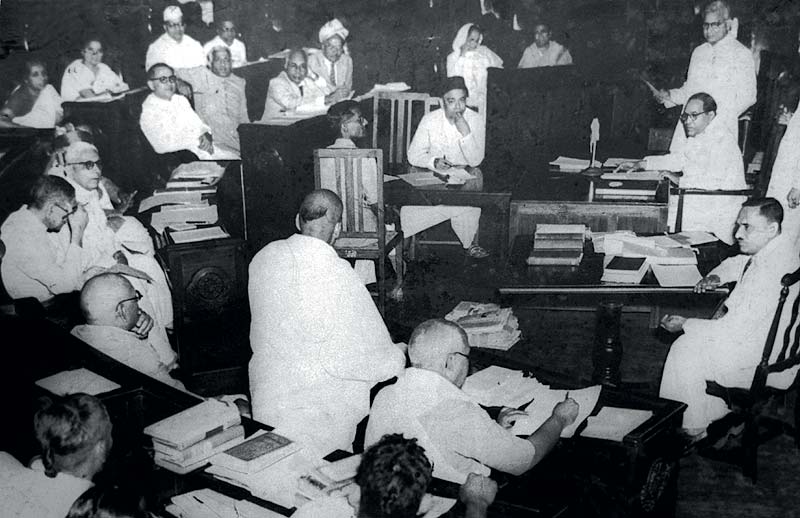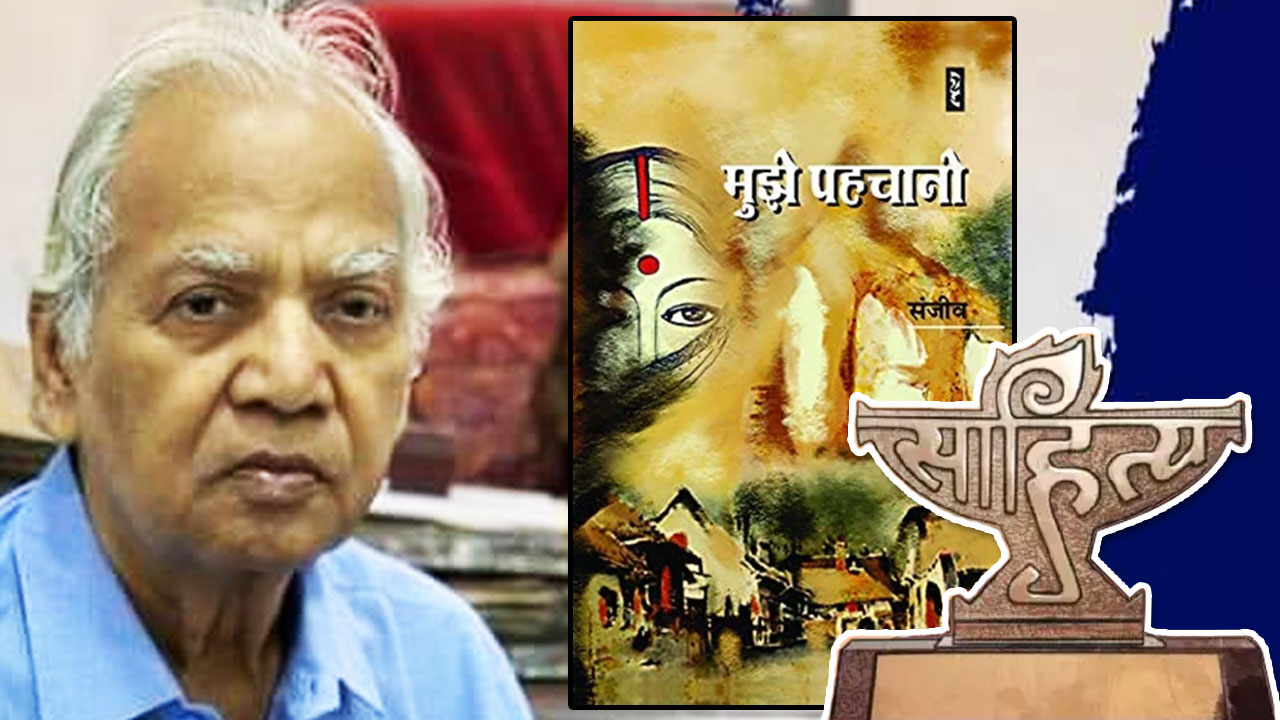The Indian statesman and political reformer, Dr Bhimrao Ambedkar, is who he was because of his intellectual training. Much, but not all, of this cultivation took place in the confines of his expansive formal education in Western institutions: namely, Columbia University, the London School of Economics, Gray’s Inn and the University of London. Other important parts of his education in a holistic sense came from his expansive readings. As a growing list of studies have demonstrated, Ambedkar absorbed, reflected and built upon many of the authors and books that he read, both while as a student and as an elder statesman and religious figure. Of these figures, the most important influence for Ambedkar’s later scholarship and activism can be said to be John Dewey, a favourite teacher of Ambedkar’s during his studies at Columbia University in 1913-1916. We can make this judgment of importance given Ambedkar’s extensive use of the pragmatist’s ideas, words, and methods in his later books and speeches, as well as his extensive collection of Dewey’s books in his personal library.[1] In this short study, however, we want to examine another well-known Western philosopher who is often mentioned as an influence on Ambedkar: the British philosopher Bertrand Russell (1872–1970).
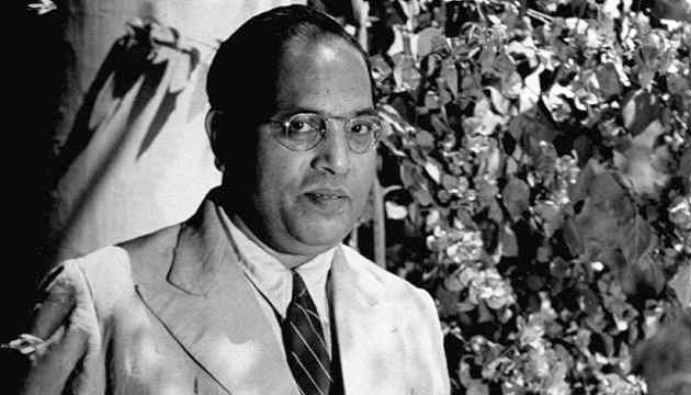
What is the exact relationship between Ambedkar and Russell? We have very few clues to start upon in such an endeavour. Ambedkar was exposed to the works of Russell, specifically the latter’s 1916 book, Principles of Social Reconstruction. We know this because Ambedkar published a review of the 1917 reprint of this work in the Journal of the Indian Economic Society in 1918.[2] However, no copies of Russell’s books survive in the remains of Ambedkar’s personal library held by Siddhartha College in Mumbai and the Symbiosis Institute in Pune. Another source of influence might be traced to interpersonal contact. Many influential accounts and chronologies of Ambedkar’s development claim that Russell met with Ambedkar in 1920 to discuss Ambedkar’s 1918 review. The authoritative biography in English by Dhananjay Keer does not mention any such meeting, but others do identify such a meeting. Vijay Mankar talks about Ambedkar’s return to London in 1920, and writes that “at London, philosopher Bertrand Russell invited the doctor for discussion on The Principles of Social Reconstruction, the topic on which the latter had expressed his views earlier in 1918.”[3] K. N. Kadam also provides a tantalizing reference: “Dr Ambedkar was invited by Russell, in 1920, for a discussion on the review article written by the former, on the latter’s Principles of Social Reconstruction. Unfortunately, we do not have any record of the discussion that took place between the two intellectuals.”[4] Kadam notes in the following entry in his chronology under 1920: “Dr B.R. Ambedkar is invited by eminent philosopher Bertrand Russell for discussion on The Principles of Social Reconstruction.”[5] In his extensive chronology of Ambedkar’s life, Vijay Mankar notes the same entry for 1920.[6] Raj Kumar also follows Kadam’s chronology in his work, and lists an invitation from Russell for a meeting with Ambedkar in 1920.[7]
What can we say with a high-level of confidence about the relationship between these two thinkers? Did such an invitation or meeting occur in 1920? Beyond interpersonal contact, what evidence can we marshal to substantiate the lines of influence between Russell and Ambedkar? Answering these questions with more evidence will help us fill out what we know of Ambedkar’s education, thought and influences.
Who was Bertrand Russell?
Russell worked on a wide range of subjects: he was a moral philosopher and activist, as well as a Nobel Prize-winning public intellectual who strongly opposed British involvement in World War I and ran a nuclear disarmament campaign to the end of his days. This latter campaign lives on today as the Bertrand Russell Peace Foundation. Among technical philosophers, he is best known for his groundbreaking work in mathematics and logic that produced the Principia Mathematica (1910), which he co-authored with Alfred North Whitehead. Russell’s work in psychology and physics, such as his The Analysis of Mind (1921) and The Analysis of Matter (1927), still attract scholarly attention. Perhaps his most thrilling work from a reader’s standpoint lies in his applications of his logic to epistemology and metaphysics as found in his Our Knowledge of the External World as a Field for Scientific Method in Philosophy (1914) and The Philosophy of Logical Atomism (1918). His 1912 popularization of philosophy, The Problems of Philosophy, was almost immediately a classic and still ranks among the best introductions to philosophy in English. Much the same can be said of his popularizations of more technical work like his Introduction to Mathematical Philosophy (1919) and The ABC of Relativity (1925).
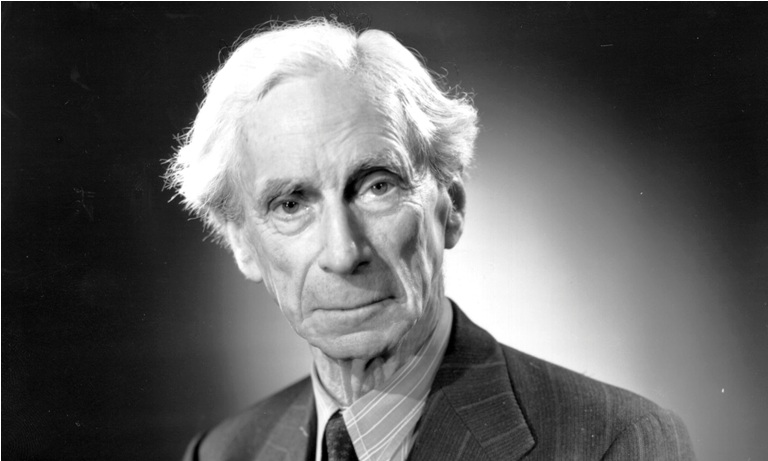
This short and incomplete survey shows Russell was a philosopher of many interests, but his work from 1900 to 1925 can be thematically summarized as follows: From 1903 to 1910, he was occupied largely with logic and writing Principia; Russell also focused on epistemology from 1910-1914 and on metaphysics, physics and psychology from 1918-1925.[8] Logic was not a dry and unpractical area of study for Russell; instead, it held immense practical value for solving important theoretical and societal problems. Throughout 1910-1925 he concerned himself with applying his logical work in Principia to the old unresolved problems of philosophy in the hope of securing philosophical progress. But he largely set aside his technical work in philosophy during World War I: his concern for the fate of humankind largely overrode his other interests as he outspokenly opposed the war and conscription. He lost his lectureship at Cambridge on 12 July 1916, and was even jailed from 1 May to 14 September 1918, for his opposition to the war.[9] In this politically active period he wrote extensively on politics and society as he considered how another war could be averted and the survival of humanity could be secured. He gave lectures from 18 January to 7 March 1916, published as Principles of Social Reconstruction in 1917, and lectures in October 1916, published as Political Ideals in 1917.[10]
When might have Russell met Ambedkar?
In order to ascertain whether a meeting took place between these two thinkers, we must carefully determine when such a meeting could have taken place. The chronologies that mention such a meeting invariably indicate “1920” without any more specific information for its timing. By identifying when Ambedkar and Russell could have possibly met in London, we can determine ways to collect supporting or disconfirming evidence for the claim that they met. When did Ambedkar arrive in London in 1920? This simple question is also difficult to answer. According to Kadam’s chronology, Ambedkar departed Bombay for London by ship on 5 July 1920.[11] We do not have confirmation of a firm arrival date in London, however. Accounts of transport in the 1910s in the British Empire put a journey by ship – before the World War – at ten to twenty days’ travel time from Bombay to London.[12] Using this as a rough estimate, we can place Ambedkar’s arrival at the earliest on 15 July 1920. In all likelihood, it was later than that. One of the earliest letters we have from Ambedkar’s second stay in London is a message sent to his professor at Columbia, Edwin Seligman, asking for introductory letters. Ambedkar dates this letter “London, 3/8/20,” verifying that he was there by 3 August 1920.[13]
The other piece to the puzzle is Russell. In 1920, Russell embarked on a year-long trip through China, parts of which overlapped with a lecture tour of Chinese universities by Ambedkar’s American guru, John Dewey. When did Russell leave London for this excursion? Judging from Russell’s letters, he made the decision to accept the invitation to visit China on 23 July 1920.[14] Russell and his companion, Dora Winifred Black, left London for Marseilles on 15 August 1920. In France they would eventually board a ship bound for China on 6 September 1920.[15] Russell did not return to England until he arrived back in Liverpool on 25 August 1921.[16] Any meeting between these two thinkers in 1920 must have occurred in the time between Ambedkar’s possible arrival on 15 July and Russell’s confirmed departure on 15 August. Is there any evidence that we can gather to help shed light on whether this meeting actually happened, or whether such a story is apocryphal?
Searching for evidence of a meeting between Ambedkar and Russell
Ambedkar and Russell both resided in London in August 1920. Ambedkar’s address at 96 Brook Green was almost a one and a half hours’ walk to Russell’s residence at Overstrand Mansions. The overlapping residence of Ambedkar and Russell in London and their shared interests tempts one to infer they met in the summer of 1920. However, there seems to be no extant evidence of such a meeting that we can identify. This does not imply such a meeting never occurred, and there may be yet-undiscovered documents or sources that confirm such a meeting. But we should be wary of inferring that they did meet without some confirming evidence. A brief discussion of the possible sources of evidence that we have identified should show there is ample reason to doubt that a meeting occurred.
First, Russell kept a pocket diary for most of his life to record his meetings and appointments. Besides a gap from 1906 to 1907, we have his pocket diaries from 1902 to 1969, a year before he died.[17] One of the authors of this piece (Elkind) visited the Bertrand Russell Archives at McMaster University, Canada, in May 2017. He examined Russell’s pocket diary from 11 July 1920 to 17 August 1920 – a date range that exhausts the possible time period that Ambedkar and Russell were both in London during 1920. While many meetings are noted, Russell’s pocket diary shows no reference to a meeting with Ambedkar for these dates, or to either of the two London addresses where Ambedkar resided between 1920-1922. There is the chance that the meeting was arranged in the name of third party, but no other entry seems related to Ambedkar or his known associates.
Second, a search of the Russell Archives’ online database shows no record indicating that Ambedkar and Russell met. The Russell Archives’ online database (BRACERS) allows scholars to search the library’s 131,537 Russell-related letters and documents.[18] These library records include the recipient and sender of a given letter, a determination of its date, the location from where the letter was sent (if Russell was the sender), a summary of the document’s contents that sometimes includes excerpts and archival identifying information. The BRACERS database allows one to search all this stored information for keywords, names, dates and so on. Caution must be exercised in drawing strong inferences solely from a search of BRACERS, as it is rare that the summaries in this database include the entire text of a given document. In other words, a search of BRACERS is not decisive evidence that a keyword or name never occurs in a letter currently housed in the Russell Archives. But the fact that a keyword or name never occurs in the summaries of 131,537 sources significantly weighs against the claim that there is a verifying reference buried somewhere in the Russell Archives.

A search of BRACERS does not indicate a meeting, or an invitation for a meeting, with Ambedkar. A search for both “Bhimrao” and “Ambedkar” in the online database of Russell’s letters turns up no results. From 1920-1922, Ambedkar resided in two districts of London – first at 96 Brook Green in Hammersmith, and then at 10 King Henry Road in Chalk Farm.[19] A BRACERS search of the street addresses correlating with correspondence shows no results. A search for the Chalk Farm district produces no results while a search for the Hammersmith district produces only two results for 1920. The first of these is a March 1920 letter from Russell to Constance Malleson.[20] The second does not even involve Russell: it is a November 1920 letter to Russell’s brother Frank from Nigel Playfair, the actor-manager of the Lyric Theatre in Hammersmith.[21] Neither letter dates from the July-August period in which any meeting of Ambedkar and Russell would likely have occurred. Furthermore, 44,796 distinct names occur in the list of Russell’s correspondents.[22] Our search efforts have found that Ambedkar is not on this list.
All this leads us to conclude that we have insufficient evidence of a meeting – or an invitation for a meeting – between Russell and Ambedkar. Such a meeting may have occurred, but it is very important for the history of eminent persons like Ambedkar and Russell to be painstakingly accurate. So given our current evidence we are inclined to deny that they met, though we admit that evidence may still be found that shows they did. For now, we are left with the conclusion that any influence Russell had on Ambedkar must have been mediated by the printed word.
Ambedkar’s verified intellectual debt to Russell
While we have identified no evidence that Russell met with Ambedkar, we do see textual evidence that the writings of Russell did influence the development of Ambedkar as thinker and activist. We do know that Ambedkar published a review of Russell’s 1916 book, Principles of Social Reconstruction. Ambedkar’s review was published in the first volume of the Journal of the Indian Economic Society in 1918. We can infer that Ambedkar read the 1917 reprinted British edition of this book from the title and date included in his review: the American edition of this book, also printed in 1917, had the title of Why Men Fight. The British origin of this book leads us to speculate that he read the book while studying in London during 1916-1917, although it is difficult to know exactly when he wrote this review.
What exactly in Russell’s book seemed to influence him? One of the authors of this inquiry (Stroud) has explored Ambedkar’s engagement with Russell’s book – and its ultimate relation to Ambedkar’s teacher, John Dewey – in detail elsewhere, but we can summarize some of the main vectors of influence.[23] Russell’s book was influenced by the psychology of the American pragmatist, William James, and was concerned with the interplay between institutions and human psychology.[24] For instance, how do habits of personal aggression relate to social institutions that prioritize violence and acquisition? This is one of the topics that Russell addresses in his book. Russell is also concerned with a meliorative question: how do we intervene to change social situations that we do not like? For most of his adult life, Russell was involved in activism of some sort. In this book, he ruminates on the effectiveness of activism, including state-induced efforts to change the world through military violence. Russell sounds sceptical at points, placing the force-using activist or reformer in the same category as the oppressor in many cases. In describing those who would change the world or social institutions to make room for what they perceive as “justice”, Russell remarks: “Claims are advanced in the name of justice, and resisted in the name of tradition and prescriptive right. Each side honestly believes that it deserves to triumph, because two theories of society exist side by side in our thought, and men choose, unconsciously, the theory that fits their case. Because the battle is long and arduous, all general theory is gradually forgotten; in the end, nothing remains but self-assertion, and when the oppressed win freedom they are as oppressive as their former masters.”[25]
Russell was describing a problem that surely Ambedkar felt: how can the reformer create just social conditions without creating newer forms of injustice? Later in his life, Ambedkar would pen into his version of the Buddha’s teachings, The Buddha and His Dhamma (1957), various phrases that one should treat one’s enemy with kindness and love, even though they might be labelled an “enemy” because they emit no kindness and love to you in the first place.
This is a deep problem for those seeking to reform communities filled with disagreement and perceived injustice. How do you tolerate or love those who do not tolerate and love you, or people you value? At this early point in Ambedkar’s intellectual development, however, love and charity are not foregrounded. Instead, Ambedkar begins to wrestle with the question of means and ends, a problematic that only later in his life resolves into a Buddhist view of compassionate persuasion and activism. In his 1918 review, Ambedkar places Russell’s critique of violence next to the philosophy of Ambedkar’s American teacher, John Dewey, from his days at Columbia University in 1913-1916. Using “the language of Professor Dewey”, Ambedkar rereads Russell’s critique as really “only against ‘force as violence’ but [it] is all for ‘force as energy’.”[26] This is a distinction that can be traced to Dewey’s lectures in 1915-1916 during Ambedkar’s days at Columbia University.[27] For Dewey, you need some sort of force to get what you want, including a state of justice. In his review, Ambedkar extends this idea, arguing, “It must be remembered by those who are opposed to force that without the use of it all ideals will remain empty just as without some ideal or purpose (conscious or otherwise) all activity will be no more than mere fruitless fooling.” [28] Reform requires forceful means.
Russell, like others, opposed the “Great War” because, as he saw it, it was at best a misguided attempt to achieve a just state using violence. It fed upon and enabled institutions and psychological habits attuned to the use of violent means. Ambedkar reacted to this criticism as a Dewey-trained pragmatist: he criticized anyone who employs “the present European war” to “censure the philosophy of force” and to argue for a “gospel of quietism and the doctrine of non-resistance.”[29] Surely in the back of Ambedkar’s mind were historic and present trends in India toward nonviolence based on orthodox Hindu systems of thought. Corresponding to this conjecture are published lines from his review that sought to “present Indian readers of Mr Russell with a correct interpretation of his attitude. Their innate craving for a pacific life and their philosophic bias for the doctrine of non-resistance, I am afraid, might lead them to read in Mr Russell a justification of their view of life.”[30] Ambedkar was worried about the pernicious effects of Russell’s critique once transplanted to the setting of colonial India, a chaotic juggernaut searching for ways to achieve political independence and perhaps social reform.
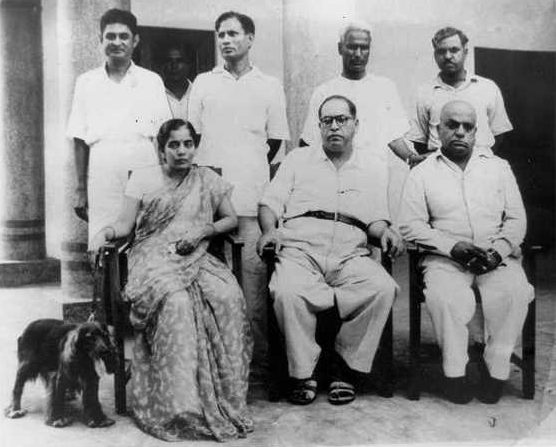
Russell’s book can be said to have influenced Ambedkar in the sense that it forced the Indian reformer to clarify what he thought about reform and its limits. He was surely taken by Russell’s ethos of activism, but he worried about how this Western critique tied into many of the Hindu ideologies that he saw as oppressive and quietistic, especially as they ignore or implicate caste-based social arrangements. He simultaneously wanted to bring Russell’s book to the attention of the educated Indian audience that this journal served, and to qualify or limit its application to the problems at hand in India. These problems, from Ambedkar’s point of view, went beyond the push for independence: they also primarily concerned how a deeply democratic and equal social community can be created from among all the age-old divisions in Indian social groups.
This Russell book can therefore be said to be the most significant and verifiable vector of influence the British philosopher had on young Ambedkar. Ambedkar was forced to respond to Russell’s partially correct worry about the use of force to effectively achieve justice without creating additional injustices by evoking Dewey’s theoretical, but thoroughly Westernized, utterances on force. For instance, in this review Ambedkar echoes Dewey’s class lectures on ends and means in the following way: “Ends and means (= force in operation) are therefore concomitants and the common adage that the end justifies the means contains a profound truth which is perverted simply because it is misunderstood. For if the end does not justify the means what else will? The difficulty is that we do not sufficiently control the operations of the means once employed for the achieving of some end.”[31] On this Deweyan line of argument, one must use force in their means to achieve any end at all, but force does not automatically equate to violence. Russell was correct, it seemed, in highlighting a worry about what kinds of force constitute violence and replicate, however unknowingly, new and old forms of injustice. We can therefore judge that the young Ambedkar writing this review saw promise in Russell’s worries and approach, but felt a nagging sense of incompleteness even when he applied Dewey’s views. When did force as energy transition into force as violence? Might we fool ourselves into thinking that the pressures we apply to cure social injustice cannot possibly lead to new forms of domination, even if they are aimed solely one’s former oppressors?
Russell as a goad to the development of Ambedkar’s pragmatism
We are tempted to see Russell’s influence on Ambedkar as a goad, namely one that pushed Ambedkar to develop and work out his own pragmatist philosophy of reform and activism. Ambedkar, of course, changes his activist approach and method throughout his life. In the 1920s he followed a different path for social reform than he did in his bombastic speeches renouncing Hinduism in the 1930s. And both of these eras lacked the Buddhist overlay to his programme of caste-system opposition that he employed in the 1950s, culminating in his magisterial book, The Buddha and His Dhamma. Even at the height of his re-imagining of the Buddha’s moral story in the 1950s, Ambedkar referred once again to the distinction he heard in Dewey’s class in 1915-1916 and that he broached in his review of Russell’s book in 1918. In his late unpublished manuscript “Buddha or Karl Marx”, Ambedkar resisted Marxist ways of seeking social justice by referring to the same distinction that he used in the early review of Russell’s book: “As Prof Dewey has pointed out that violence is only another name for the use of force and although force must be used for creative purposes a distinction between use of force as energy and use of force as violence needs to be made. The achievement of an end involves the destruction of many other ends, which are integral with the one that is sought to be destroyed. Use of force must be so regulated that it should save as many ends as possible in destroying the evil one.”[32]
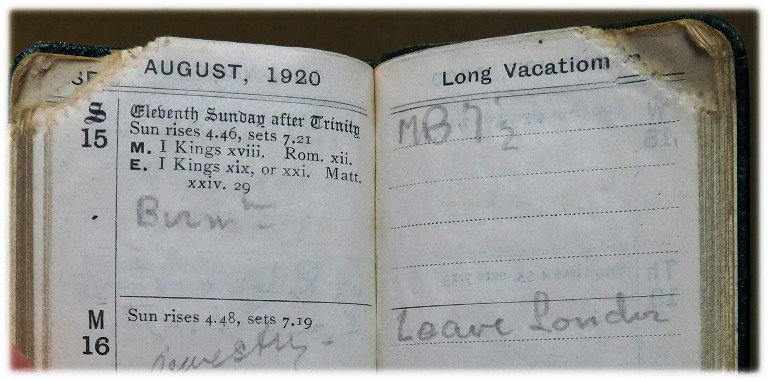
Unlike many communists of his era, Ambedkar wanted a method of reform that preserved as many ends as possible, including those ends valued by one’s opponents. Seek out the source of oppression, but do not create new oppression with your efforts. This seemed to be the motto of Ambedkar, a gloss that is remarkably similar to his own oft-repeated mantra of “equality, liberty, and fraternity”.[33] In his unpublished “Buddha or Karl Marx”, he criticizes the often-violent methods of communists as achieving equality and liberty, but at the cost of procuring or preserving fraternity among all community members. Opposed to the communist method, Ambedkar puts his solution in terms of what he saw as living and useful in the Buddhist tradition: “The Buddha’s method was different. His method was to change the mind of man: to alter his disposition: so that whatever man does, he does it voluntarily without the use of force or compulsion. His main means to alter the disposition of men was his Dhamma and the constant preaching of his Dhamma. The Buddha’s way was not to force people to do what they did not like to do although it was good for them. His way was to alter the disposition of men so that they would do voluntarily what they would not otherwise do.”[34] Forcefully changing one’s enemies does nothing to make them one’s allies.
Much more can and must be said about Ambedkar’s lifelong quest to enunciate the right approach to social change that preserves all of the values of liberty, equality, and fraternity. What can be said here, however, is simple and important: Bertrand Russell, largely through his 1916 book, forced Ambedkar to think about activism, social change and reform using the Western notions of John Dewey on force. This process in turn led Ambedkar to more fully develop these ways of thinking about means and ends in light of the unique problems and traditions on the Indian subcontinent. Russell and Dewey combined to help the young Ambedkar start the arduous process of finding his own voice. The contours of this voice can be seen as falling within the pragmatist tradition of philosophy and thought, but we always must add the caveat that he created a novel form of Indian pragmatism based upon the types of social injustice and traditions unique to India’s social and intellectual setting. Russell is an important part of this story as he was one of the earliest figures to push for such a novel synthesis of Deweyan pragmatism in the caste-reform efforts of Ambedkar.
[1] For the importance that one Western figure – John Dewey – played in Ambedkar’s development see: Christopher Queen, ‘A Pedagogy of the Dhamma: B.R. Ambedkar and John Dewey on Education’, International Journal of Buddhist Thought & Culture, 24 (2015), 7-21; Scott R. Stroud, “What Did Bhimrao Ambedkar Learn from John Dewey’s ‘Democracy and Education’?” The Pluralist, 12 (2017), 78-103; Scott R. Stroud, “The Influence of John Dewey and James Tufts’ ‘Ethics’ on Ambedkar’s Quest for Social Justice”, The Relevance of Dr Ambedkar: Today and Tomorrow, Pradeep Aglave, ed (Nagpur University Press, 2017), 33-54; Arun P. Mukherjee, ‘B.R. Ambedkar, John Dewey, and the Meaning of Democracy’, New Literary History 40 (2009), 345-370.
[2] Bertrand Russell, Principles of Social Reconstruction (London: George Allen and Unwin Ltd, 1916; reprinted in 1917). Ambedkar’s review is: ‘Mr Russell and the Reconstruction of Society’, Writings and Speeches, vol 1 (Bombay: Government of Maharashtra, 2014). Russell’s book was published in the United States in January 1917 with the alternate title of Why Men Fight (Richard A. Rempel, ‘Introduction’, Principles of Social Reconstruction, London: Routledge, 1997, ix). Ambedkar refers to the British title of this work, therefore showing that Ambedkar was engaging the edition of this work putatively acquired during his first stay in London during 1916-1917.
[3] Vijay Mankar, Dr B.R. Ambedkar: An Intellectual Biography (Nagpur, Blueworld Series, 2016), 11.
[4] K. N. Kadam, Dr Babasaheb Ambedkar and the Significance of His Movement (Bombay, Popular Prakashan, 1991), 16.
[5] Ibid, 77.
[6] Vijay Mankar, Life and the Greatest Humanitarian Revolutionary Movement of Dr B.R. Ambedkar: A Chronology (Nagpur, Blueworld Series, 2009), 29.
[7] Raj Kumar, Ambedkar and His Writings: A Look for the New Generation (Gyan Publishing House, 2008), 227.
[8] These are oversimplifications with many exceptions. For example, Russell also prepared the second edition of Principia in 1925 and wrote about language and meaning in 1919 and 1923. And Problems and Our Knowledge are both works that deal with metaphysics and logic.
[9] John G. Slater, ‘Chronology: Russell’s Life and Writings, 1914-19’ in The Collected Papers of Bertrand Russell: Volume 8 (London, George Allen & Unwin, 1986), pp xxxviii-xxxix
[10] Ibid, xxxviii-xxxix.
[11] Kadam, Dr Babasaheb Ambedkar and the Significance of His Movement, 77. This date is repeated in Mankar’s chronology, 27.
[12] Cheyenne Macdonald, ‘What travel looked like 100 Years Ago’, Daily Mail, November 30, 2015: http://www.dailymail.co.uk/sciencetech/article-3339902/What-travel-looked-like-100-years-ago-Map-shows-days-took-travel-abroad-1900s.html
[13] Bhimrao Ambedkar, Letter of 3 August 1920, Seligman Papers, Rare Book and Manuscript Library, Columbia University.
[14] Bertrand Russell, Letter 337 [To Colette O’Neil], Selected Letters of Bertrand Russell: The Public Years, 1914-1970, Nicholas Griffin, ed (London, Routledge, 2001), 205
[15] Ibid, 210.
[16] John G. Slater, ‘Chronology: Russell’s Life and Writings, 1919-26’ in The Collected Papers of Bertrand Russell: Volume 9 (London, George Allen & Unwin, 1983), xxxiii
[17] These artefacts, along with other materials, can be found at the Bertrand Russell Archives at McMaster University in Canada: http://archives.mcmaster.ca/index.php/pocket-diaries
[18] http://bracers.mcmaster.ca/ (This tally is as of 20 June 2017.)
[19] If today’s trip planners are accurate predictors of travel in the 1920s, Ambedkar’s address at 96 Brook Green was about an hour-and-a-half walk to Russell’s residence at Overstrand Mansions.
[20] http://bracers.mcmaster.ca/19626
[21] http://bracers.mcmaster.ca/128935
[22] http://bracers.mcmaster.ca/php/correspondents.php. This list is current through 26 February 2015.
[23] Scott R. Stroud, ‘Pragmatism, Persuasion, and Force in Bhimrao Ambedkar’s Reconstruction of Buddhism’, Journal of Religion, 97 (2017), 214-243.
[24] Richard A. Rempel, ‘Introduction’, Principles of Social Reconstruction (London: Routledge, 1997), x.
[25] Bertrand Russell, Principles of Social Reconstruction, 30.
[26] Bhimrao R. Ambedkar, ‘Mr Russell and the Reconstruction of Society’, 485.
[27] Scott R. Stroud, ‘Pragmatism, Persuasion, and Force in Bhimrao Ambedkar’s Reconstruction of Buddhism’, 222-223.
[28] Bhimrao R. Ambedkar, ‘Mr Russell and the Reconstruction of Society’, 486.
[29] Ibid, 486.
[30] Ibid, 486.
[31] Ibid, 485.
[32] Bhimrao R. Ambedkar, ‘Buddha or Karl Marx’, Writings and Speeches, vol 3, 451.
[33] Ambedkar most likely heard this motto for the first time in Dewey’s 1915-1916 class. For the evidence for this claim, see Scott R. Stroud, ‘Pragmatism, Persuasion, and Force in Bhimrao Ambedkar’s Reconstruction of Buddhism’, 222.
[34] Ibid, 461.
Forward Press also publishes books on Bahujan issues. Forward Press Books sheds light on the widespread problems as well as the finer aspects of Bahujan (Dalit, OBC, Adivasi, Nomadic, Pasmanda) society, literature, culture and politics. Next on the publication schedule is a book on Dr Ambedkar’s multifaceted personality. To book a copy in advance, contact The Marginalised Prakashan, IGNOU Road, Delhi. Mobile: +919968527911.
For more information on Forward Press Books, write to us: info@forwardmagazine.in

